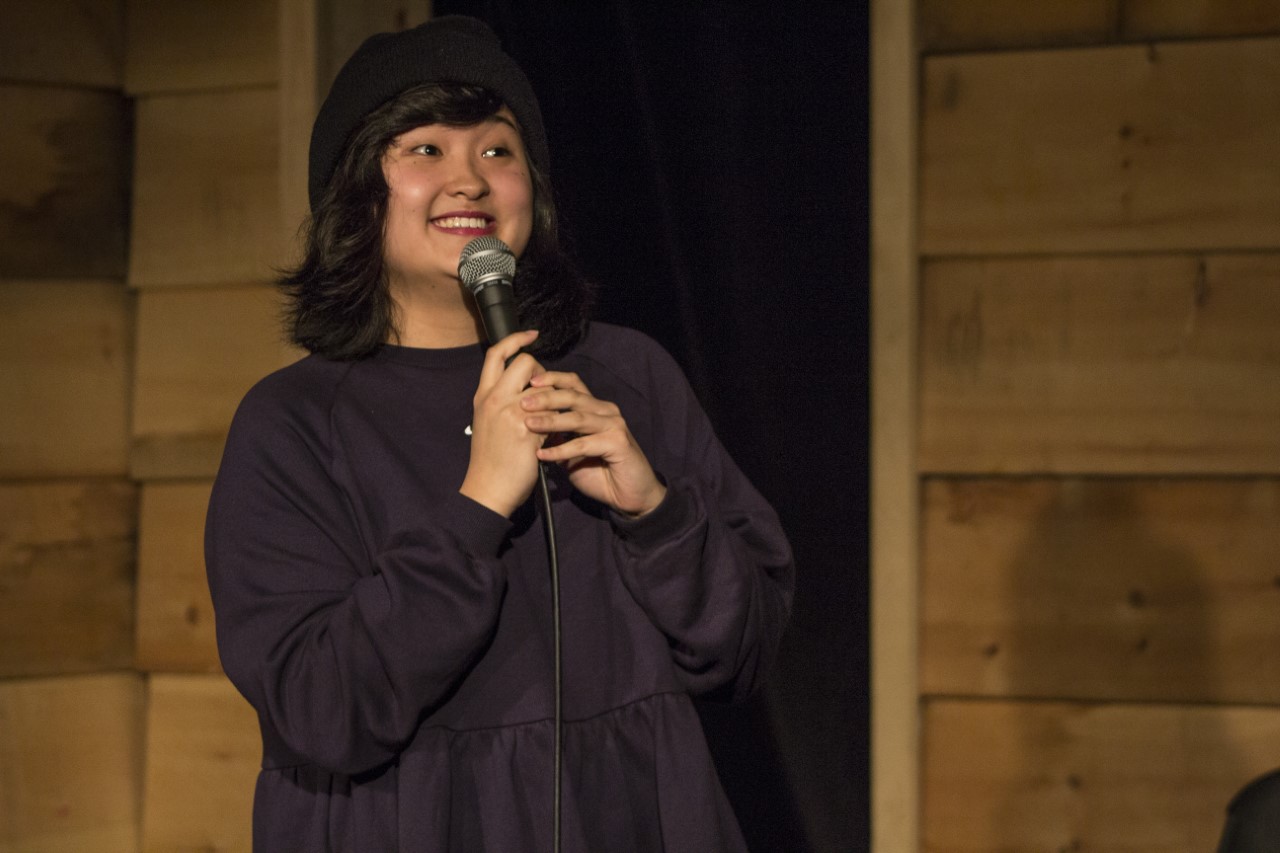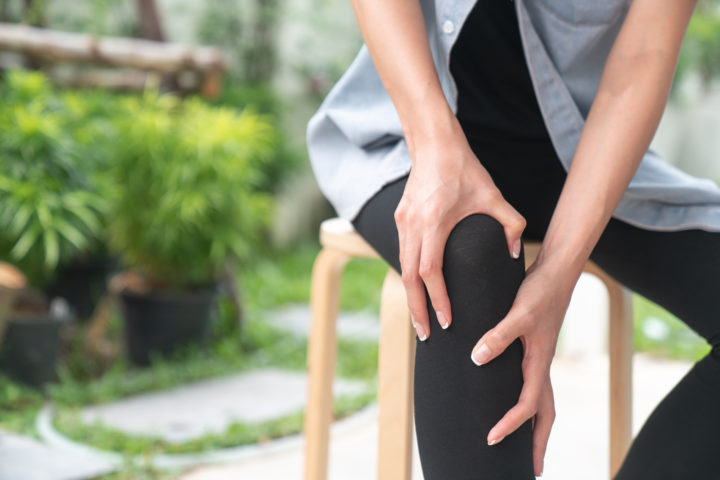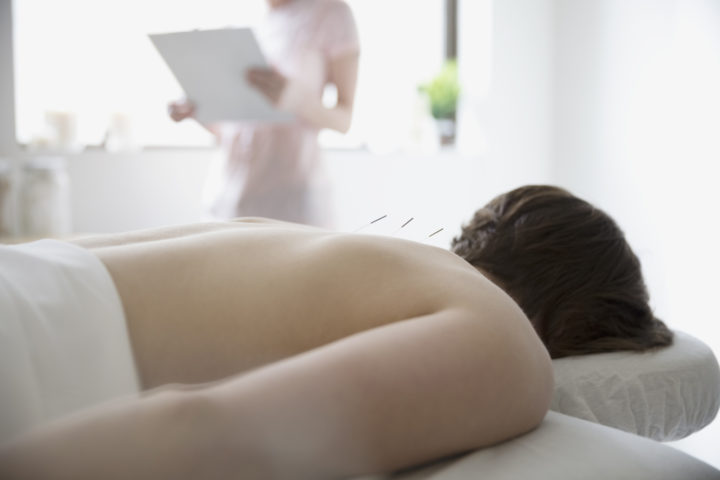A young comedian and media maven, Celeste Yim has proven herself to be wise beyond her years in the way she looks at and approaches the world.
Concerned with issues of representation in media and tech industries, she’s especially invested in raising the voices and visibility of marginalized folks of color. She talked to HelloFlo about her current projects, writing process, and general outlook on the world.
What do you do for a living, and why should our readers know about it?
Right now, I’m a full-time student. I’m in my third year as a double major in Comparative Literature and Media Studies, but I moonlight as a very good-looking standup comedian and worked for the past two summers as an intern at Instagram’s headquarters in California. Being a young woman with a wide variety of interests is complicated because it’s usually difficult enough to excel in just a single one. I used to be really nervous about committing to more than one role or one hobby because women are not given the luxury of dabbling—of assuming roles casually. I have noticed this especially in the fields I have mentioned (academia, entertainment, and tech) which are usually dominated by men. I also think it’s important, however, for young women to do what they want instead of what the socially affluent men in their professional circles insist that they do. And since I really don’t know what it is I really do want to excel in as a capital-c Career, I’ve just tried to pursue the things I care about—art, online communities, butt jokes—instead of committing to the pressure of a “role.” I am very busy but the alternative is just too boring and luckily, doing so *and* being exhausted has led me to my aforementioned “jobs.”
What are your hopes for your future and the future of media?
The biggest thing I am trying to remember as I try to figure out Who I Am is that any project or occupation can and shall certainly be grueling, difficult, and terrible at times—no matter how much you love and are excited about it. I could be making and eating cotton candy for a living but if I had to do it for twelveteen hours straight every day of the week, I would surely end up crying some very sugary tears once in a while? And I love cotton candy. So the only North Star I have for a career right now is something I am very, incredibly, exceedingly, in cotton candy love with doing. I don’t know what that thing is yet but it’s exciting to begin to piece the puzzle together. I really hope that whatever my future is, it involves staying up late and working on the stories I really want to be working on with the people I want to be working on them near. In the past couple of years, I have learned so much about working in media while studying it, blogging for editorials, working in tech, and producing entertainment. I especially hope that it is diverse beyond recognition of the word diverse (which is overused and is beginning to hold very little meaning for me). I hope, more specifically, that it is run by and safe for the success of women, women of color, people of color, and queer people of color everywhere. And also I hope I am super duper rich. (In love and affection!!!)
What’s an important lesson that you’ve learned since you started this work?
“Writing is writing and not writing is not writing.” That’s how America’s sweetheart comedian John Mulaney eloquently put it on a podcast a little while ago. Once every few months, I get really scared of writing crap. Apart from stand-up, I’m the editor of a student magazine’s humor vertical and I’m the head writer of my university’s sketch comedy troupe and my biggest fear—which has admittedly been realized many times—is that either or all of the products of these ventures will tank. That they will suck and that people will not laugh and that instead they will be disparaging. And when I get into that bi-monthly mood, I just stop writing! I always stop and I have to remind myself to start again because writing bad writing sucks, but not writing at all is deadly! It’s the worst thing you can do. Luckily, I am interested in comedy writing, which in many ways requires bad, nonsensical writing. Some of what I consider my best work has been borne out of stupid, non-funny, incoherent ideas but definitely some of my worst, too. The point remains. It’s important to write even (and I think especially) when your writing is bad and difficult to do. It’s the only way to have any writing at all! And it’s probably funny to look back on in a few or, like, many years?
Can you describe one of your proudest moments in your career so far?
Last May, I got to open for one of my favorite stand up comedian’s album recording! In stand up, it’s a big deal to record an album. Comedians do this at a point in their act when they have perfected a full hour (give or take) of material and they are ready for it to be shipped and packaged to the world beyond a comedy theatre. Amanda Brooke Perrin is one of the first standups I ever saw in Toronto and she is a wonder. She is the kind of person whom you want to listen to talk about literally anything; and she is also a fantastic writer! For print! And TV! And loving emails to me! On stage, she is angry and delightful and every audience member wants to know her and be her best friend. I was very honored when she asked me to open for her because she has both inspired me as a performer and as a friend who showed me so much guidance and kindness when I was first starting out. Opening for the act that taught me the value of being a woman in this comedy scene was a really proud and important moment for me. Amanda is moving to LA soon and I know I still have so much to learn but if I ever accomplish anything related to comedy it will have been in great part due to how much Amanda has taught me!
What is an issue that you care deeply about? How do you incorporate it within the work that you do?
I care so much about other women of color, their representation, and the dialogues which surround them! I have already been really lucky to work in several capacities that have allowed me to elevate, celebrate, and even assume the idea that visibility for women of color in every field is crucial! Whether it has been booking WOCs on shows, pitching their work and stories to press outlets, or talking about my own experiences on stage, I have stressed it as a priority wherever I go. As a Korean woman—a non-black WOC—I am both alienated by non-POCs and I am afforded enormous privileges over other WOCs. I find that, especially professionally and creatively, I feel like I am an in-betweener on the spectrums of oppression and privilege. While it is an enormous burden to have to ignore the idea that I am not white and that that means something for my success, I also charge myself seriously with the responsibility of being a good ally to WOC and QTPOC (queer trans people of color) who are significantly less privileged positions than me. As for incorporating it into my work as a comedian, it’s a little more complicated. On stage, I often feel like I’m saying, “Hello, I am a Korean woman doing stand-up comedy,” but for many audiences, it seems more like I’m saying instead, “Hello, I am telling you what Korean women think!” I try to steer clear of “assuming” an authoritative voice because I am certainly not one by any means. It’s weird that I even have to explain that because no one would ever assume that a white guy’s jokes were aligned with the opinion of all white men! I’m glad it has been part of my act but I do feel like I have to reference it all the time. I even have a joke about being the only full-Asian woman doing standup in Toronto (which, to my knowledge, is true). Aren’t I so brave?
Do you have any advice for young girls who want to be more involved in comedy?
People always say that you just need to get out there and do it! Write every day and go to open mics and make it happen and do it! And for those people who feel safe and welcome in all comedy spaces—which are often dimly lit and filled with middle-aged white men and other kinds of vitriol—that’s great! But for young girls regardless of being smart and funny and cool, that’s not always the case. It’s scary to go to open mics, which are often in bars at night, alone. It’s frustrating when rooms full of men don’t understand your period jokes and express just how much they don’t via many heckles during your set. It’s vulnerable to share your thoughts and experiences about something that you think other people should laugh at. And it’s upsetting when, in return, you receive unwarranted comments about your appearance by liquored up dads with sad dad comedy dreams. I don’t think comedy should be approached with hesitation or shyness, but it is very personal and when you are a young girl especially, it is unnerving and disheartening when personal boundaries are transgressed upon. There is no urgency in comedy or otherwise that outweighs how safe or comfortable you feel. Find a space—a friend or a friendly open mic—where you feel yourself so you can focus on being as good as you can without worrying about anything else (i.e. your physical and emotional safety)! My advice for young girls interested in comedy is: Do it! Please do it! We need you to do it. And when you do do it, be loud and brash and brave and god damn hilarious. But do it to the extent you are comfortable at the rate you are comfortable doing it and know that that is an okay and normal thing to do.




comments